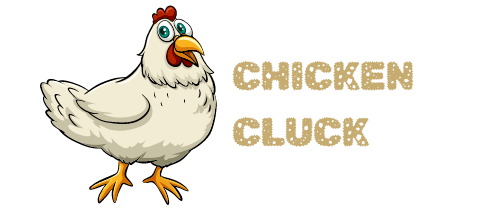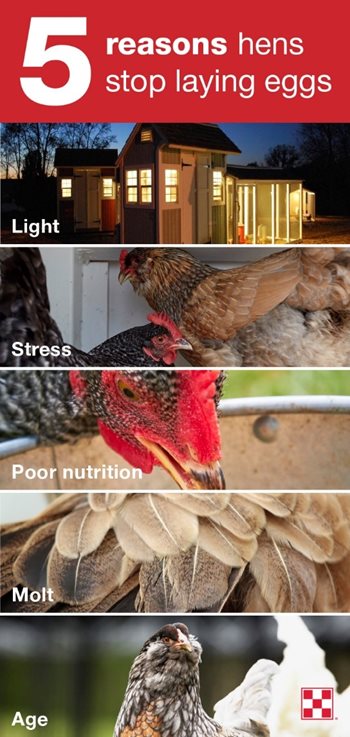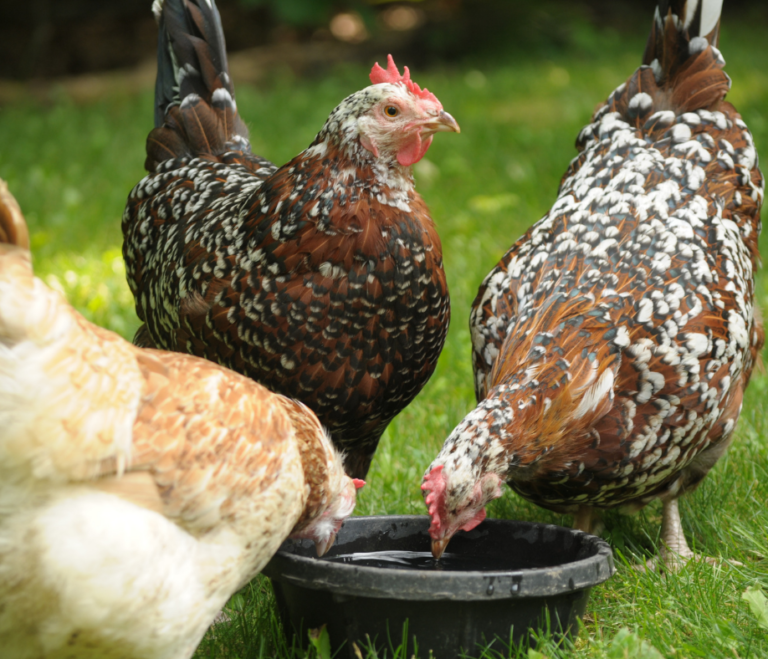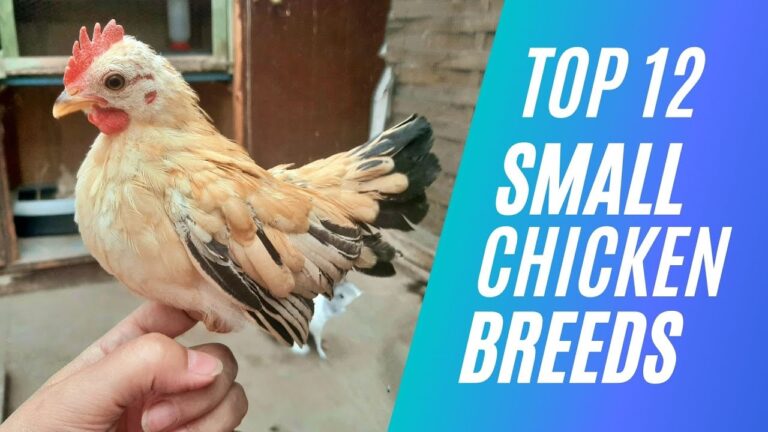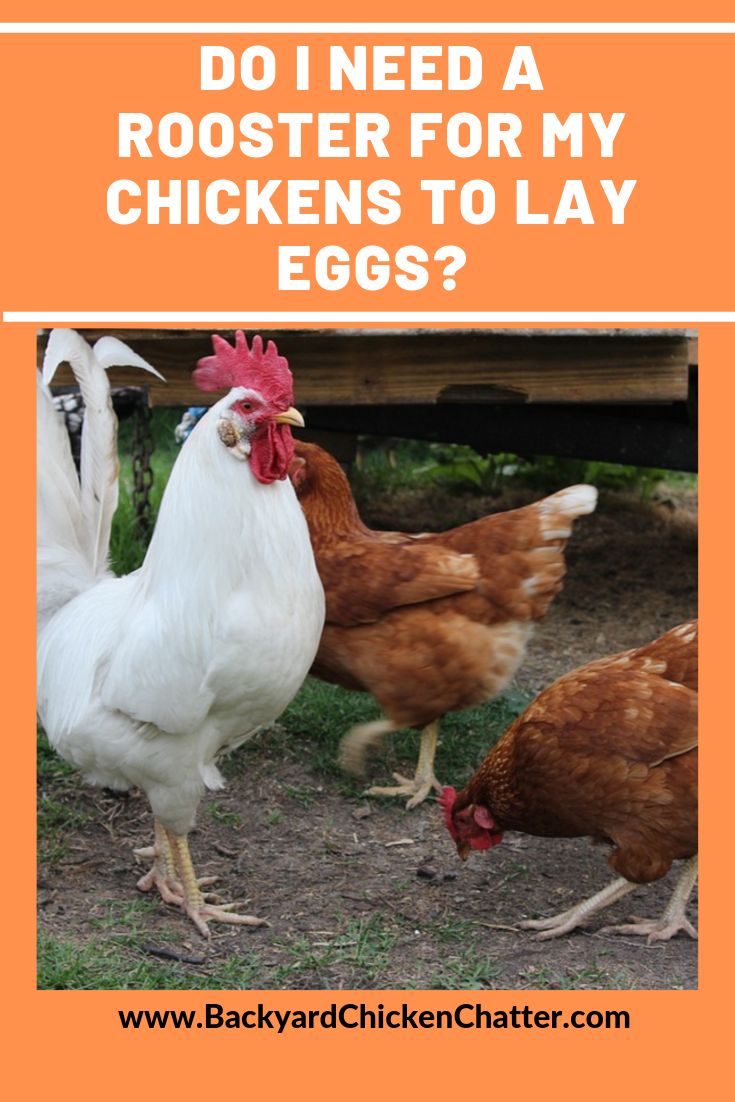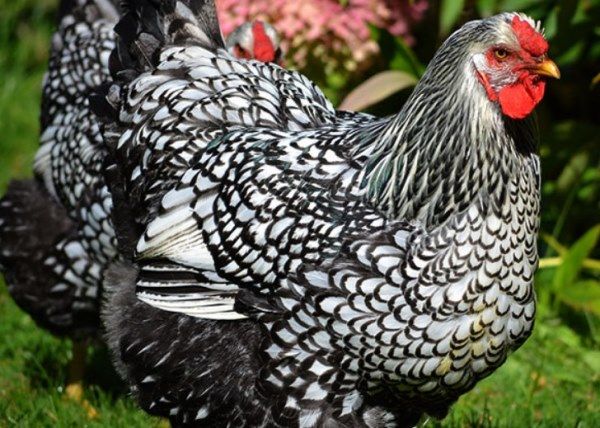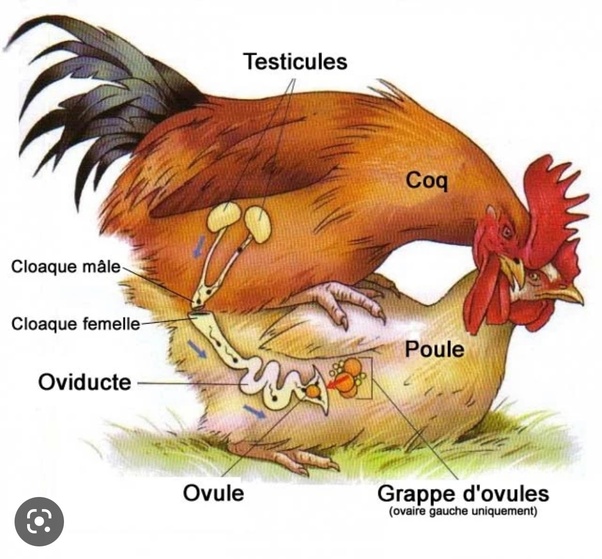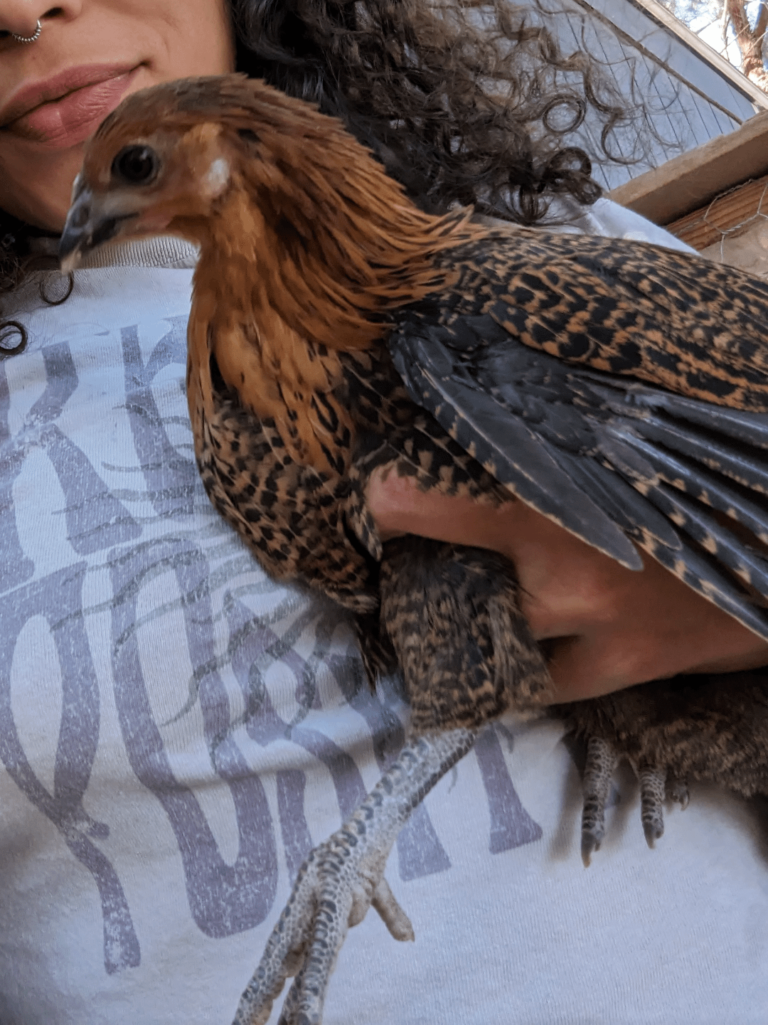Hens stop laying eggs due to aging, stress, or health issues. Lack of proper nutrition can also cause this problem.
Understanding why hens cease egg production is vital for poultry owners aiming to maintain a steady supply of eggs. Several factors influence a hen’s ability to lay, including the natural aging process, which typically slows egg production after two to three years.
Stressful conditions, such as extreme temperatures, sudden changes in routine, or the presence of predators, can disrupt laying patterns. Health issues, ranging from mites to more serious diseases, directly affect a hen’s laying capacity. Equally important is the hen’s diet; without adequate nutrition, including sufficient protein and calcium, egg production can decline significantly. Keeping these aspects in check ensures healthy hens and a consistent egg yield.
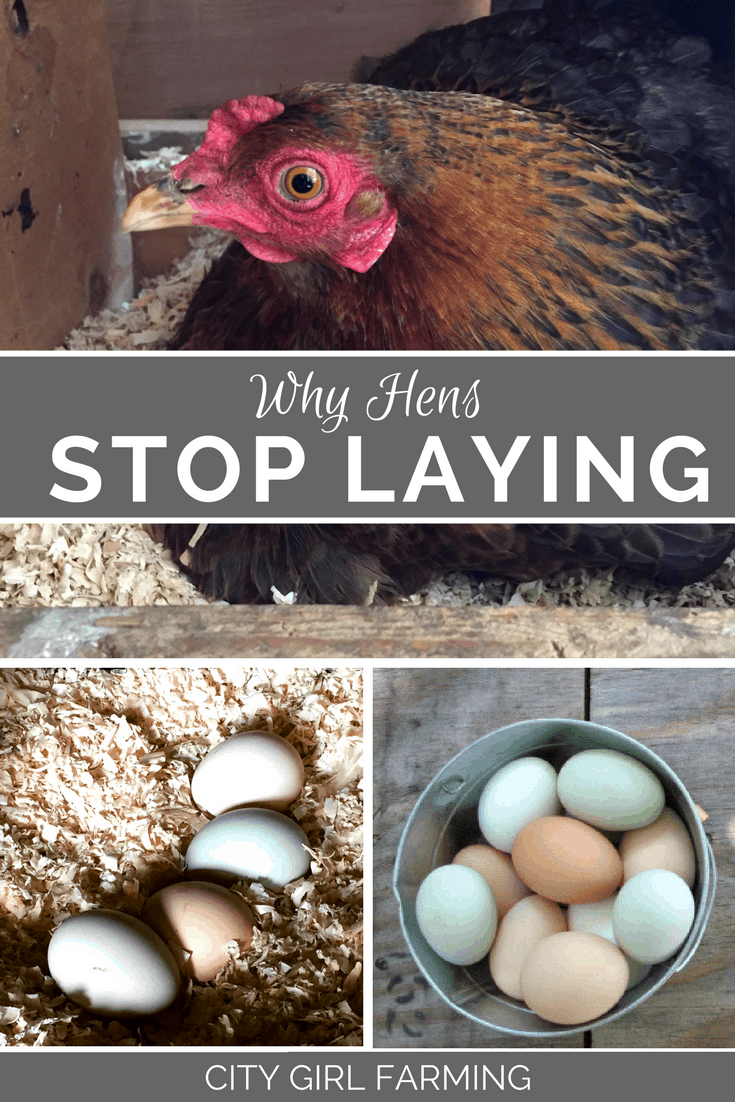
Credit: citygirlfarming.com
Egg-laying Cycle In Hens
The egg-laying cycle of hens is a marvel of nature that ensures the survival and growth of chicken populations. Understanding this cycle helps us care for our feathered friends and manage their egg production effectively.
The Natural Egg Production Process
Hens begin their egg production with a process called ovulation. Essentially, a hen’s body releases an ovum from her ovaries. Then the egg progresses through various stages within her reproductive system. This journey ends nearly 24-26 hours later with a freshly laid egg.
- Ovulation: Release of the ovum
- Egg formation: Takes about a day
- Laying: Hen deposits the egg
Changes In Laying Patterns Over A Hen’s Lifetime
As hens age, their laying patterns change. Young hens, known as pullets, start laying at about five to six months. They hit their peak at about one year. After that, egg production gradually declines.
| Age | Egg Production |
|---|---|
| 5-6 months | Start Laying |
| About 1 year | Peak Production |
| Older | Decline Begins |
A hen’s productivity can be affected by factors like seasons, nutrition, and health. Shorter days can lead to fewer eggs. So can poor diet or illness. Caring for hens means paying attention to these aspects to maintain a consistent egg supply.
Age-related Decline
An often overlooked factor in a hen’s life is the natural decline in egg production as they age. Hens are not able to lay eggs indefinitely. Understanding this process can help backyard poultry enthusiasts manage their expectations and maintain a productive flock.
Peak Laying Ages For Hens
Like all creatures, hens have a prime time for productivity. This is when they are most likely to give you a steady supply of eggs.
- Starts laying eggs: Around 6 months of age
- Peak production: Between 1 to 2 years
After reaching their peak, egg production generally begins to decrease gradually.
Age Impact On Egg Production
As hens grow older, their bodies naturally start to slow down. This includes their reproductive systems. The age-related decline in egg production is both expected and normal.
| Age (Years) | Expected Egg Production |
|---|---|
| 1-2 | High – up to 90% lay rate |
| 3-4 | Moderate – reduction begins |
| 5+ | Low – significant decrease |
By the time hens reach 5 years old, many will lay only sporadically. Some may stop laying altogether.
Environmental Stressors
Chickens, like us, prefer a comfy environment. Environmental stressors can lead to a sudden stop in egg production. Understanding these stressors helps maintain a healthy flock and steady egg supply.
Effects Of Temperature Extremes
Chickens are sensitive to drastic weather changes. Extreme temperatures, hot or cold, can disturb their laying routine.
- Heat stress leads to decreased appetite and lower egg production.
- Cold stress can cause hens to use more energy to stay warm, affecting egg-laying.
Creating a climate-controlled coop helps neutralize these effects and keeps eggs coming!
Impact Of Inadequate Housing Conditions
Hens need a calm, safe, and clean space to lay eggs. Poor housing contributes to stress, reducing egg production significantly.
| Good Housing Conditions | Bad Housing Conditions |
|---|---|
| Comfortable nesting boxes | Cramped nest space |
| Predator-secured coop | Vulnerability to predators |
| Proper ventilation | Lack of fresh air |
| Clean environment | Dirty and damp condition |
Investing in optimal housing pushes stress away and encourages hens to lay more eggs.
Nutritional Factors
Understanding the nutritional factors affecting egg production in hens is crucial. Chickens require a diet rich in specific nutrients to lay eggs consistently. An imbalance or lack of certain dietary components can lead to a drop or complete stop in egg production. Let’s explore how a hen’s diet plays a pivotal role in its ability to lay eggs.
Importance Of A Balanced Diet
A balanced diet is key for continuous egg production in hens. Chickens need proteins, carbohydrates, fats, vitamins, and minerals in appropriate amounts. Each nutrient serves a unique role:
- Proteins build and repair body tissues, including the oviduct, where eggs are developed.
- Carbohydrates supply energy, which is essential for the metabolic processes involved in laying eggs.
- Fats are energy-dense nutrients, also contributing to hormone production.
| Nutrient | Function in Egg Production |
|---|---|
| Vitamins | Support immune health, bone strength, and shell quality. |
| Minerals | Crucial for shell formation, especially calcium and phosphorus. |
Consequences Of Nutritional Deficiencies
When hens do not receive the nutrients they need, egg production can suffer. Below are common deficiencies and their effects:
- A lack of protein results in fewer and smaller eggs as the hen’s body cannot maintain the reproductive system.
- Insufficient energy sources cause the hen to use stored body fat to stay alive instead of producing eggs.
- Deficiency of vitamins and minerals, especially calcium, can lead to weak-shelled or shell-less eggs.
The impact of inadequate nutrition is not limited to egg production. Hens show poor feather quality, reduced immunity, and overall health decline. Thus, providing a complete, balanced diet is fundamental for healthy, laying hens.
Health Issues And Diseases
Hens may stop laying eggs due to various health concerns. Illnesses can disrupt their regular laying patterns. Understanding these health issues is crucial for maintaining a productive flock.
Common Health Problems In Layers
Several health problems can lead to a reduction in egg production. These issues often stem from poor nutrition, stress, or improper living conditions. Common ailments include:
- Egg Binding: When an egg gets stuck in the hen’s oviduct.
- Parasites: Mites and lice can impose stress on hens, reducing egg laying.
- Malnutrition: Lack of essential nutrients can disrupt egg production.
Infectious Diseases Affecting Egg Production
Infectious diseases pose a serious threat to egg production. They can spread quickly through a flock. Key diseases include:
| Disease | Symptoms | Impact on Egg Production |
|---|---|---|
| Avian Influenza | Respiratory distress, depression | Can halt egg laying completely |
| Infectious Bronchitis | Coughing, sneezing | Results in poor egg quality and quantity |
| Egg Drop Syndrome | Soft-shell or shell-less eggs | Significant drop in eggs laid |
Credit: www.quora.com
Molt: Nature’s Reset Button
Backyard chickens have a unique way of refreshing themselves known as ‘molt’. This annual event is crucial for their well-being. Think of it as hitting the reset button on their feathers and overall health.
Understanding The Molt Process
Molt is when hens shed old feathers to make room for new growth. This natural process is vital for their survival. It typically occurs once a year and can last for several weeks.
- Age triggers molt: Hens start molting at around 18 months old.
- Season matters: It usually happens in fall when days get shorter.
- Staggered feather loss: Hens lose feathers in a specific order, not all at once.
- Energy shift: Their bodies focus on growing feathers instead of laying eggs.
Molt And Its Effect On Egg Production
Molt can halt egg production. It’s a sign that a hen’s body needs a break. Below are the effects of molt on laying eggs:
| Stage of Molt | Egg Production Status |
|---|---|
| Beginning | Starts to slow down |
| Mid-molt | Stops laying eggs |
| Post-molt | Slowly returns to normal |
Protein is key. During molt, hens need more protein. This helps them grow healthy feathers and return to laying eggs sooner.
- Feather growth is protein-heavy.
- Quality feed helps recovery.
- Post-molt, eggs come back.
Broodiness In Hens
Broodiness in Hens is a natural phenomenon that can puzzle backyard poultry enthusiasts. Understanding why hens stop laying eggs calls for a closer look at broodiness. Essentially, broodiness is a hen’s instinct to hatch eggs, during which period she may cease to lay. Let’s uncover what makes a hen go broody and explore how to manage this behavior.
Identifying Broody Behavior
Identifying broody behavior in hens is the first step. A broody hen often shows clear signs such as:
- Sitting on the nest for long periods, even without eggs
- Being protective of the nest, sometimes pecking or growling
- Puffing up her feathers to appear larger
- Having a noticeable drop in egg production
- Displaying a reluctance to move from the nest
Strategies To Discourage Broodiness
To discourage broodiness, strategies include:
- Regularly collecting eggs to avoid accumulation
- Providing limited daylight, as longer days can trigger broody behavior
- Isolating the broody hen from the nest and flock to disrupt the broody cycle
- Ensuring comfortable and cool nesting areas, as warmth can encourage broodiness
In some cases, a simple change in diet or environment can help. Investing time in these strategies ensures your hens return to their regular laying patterns, keeping your egg baskets full!
Light Exposure’s Role
Welcome to our exploration on why hens might take a hiatus from laying eggs! A critical factor in this mystery is light exposure. Understanding the nuances of how light affects egg production can offer valuable insights into poultry management.
The Relationship Between Daylight And Laying
Hens are sensitive to changes in daylight. As the amount of daylight hours changes with the seasons, so does a hen’s laying cycle. Hens typically require about 14 to 16 hours of light per day to maintain consistent egg production.
- Longer days in spring and summer often lead to more eggs.
- Shorter days in fall and winter can cause egg production to wane.
- Hens use light as a cue for their reproductive systems.
Artificial Lighting To Stimulate Egg Production
Poultry farmers often employ artificial lighting when natural daylight isn’t enough. This strategy keeps egg production steady throughout the year. Below are some practical tips for using artificial light:
- Gradually increase light: Mimic natural lighting by slowly extending the light period.
- Avoid sudden changes: Sudden increases can stress hens and affect their laying patterns.
- Use timers: Automate light exposure to ensure consistency and reduce labor.
Artificial lighting should mimic sunrise and sunset to provide a natural rhythm for the hens, optimizing their laying potential.
Human Interventions
Human Interventions play a significant role in the egg-laying lifecycle of hens. Farmers use various strategies to maximize egg production and address the natural decline in a hen’s ability to lay eggs over time. Understanding these interventions not only enlightens consumers but also opens the floor for discussions about ethical practices in poultry farming. Let’s delve into the methods and ethics surrounding prolonged lay periods in hens.
Methods Of Prolonging Lay Period
Farmers often implement specific strategies to ensure hens lay eggs for longer periods:
- Light manipulation: Extending daylight hours to trick hens’ biological clocks.
- Dietary adjustments: Providing optimized feed for nutrient balance and health.
- Breed selection: Choosing hen breeds known for long laying capacities.
These methods aim to sustain egg production rates. They help offset the natural decline in egg-laying as hens age.
Ethical Considerations In Egg Production
The ethical treatment of hens raises questions about the methods used to prolong lay periods. Welfare concerns include:
| Aspect | Ethical Concern |
|---|---|
| Housing conditions | Space allocation and freedom of movement. |
| Health impact | Effects of prolonged laying on hens’ well-being. |
| Environmental effect | Impact of farming practices on ecosystems. |
Ethical egg production calls for a balance between efficient farming and the health and happiness of the hens.

Credit: www.purinamills.com
Conclusion
Understanding the factors behind a hen’s reduced egg production is crucial for effective poultry management. Seasonal changes, diet, age, and health issues can all impact egg-laying patterns. By considering these elements, we can take appropriate actions to support our feathered friends.
Keeping hens happy and healthy ensures a steady supply of eggs for everyone to enjoy.
